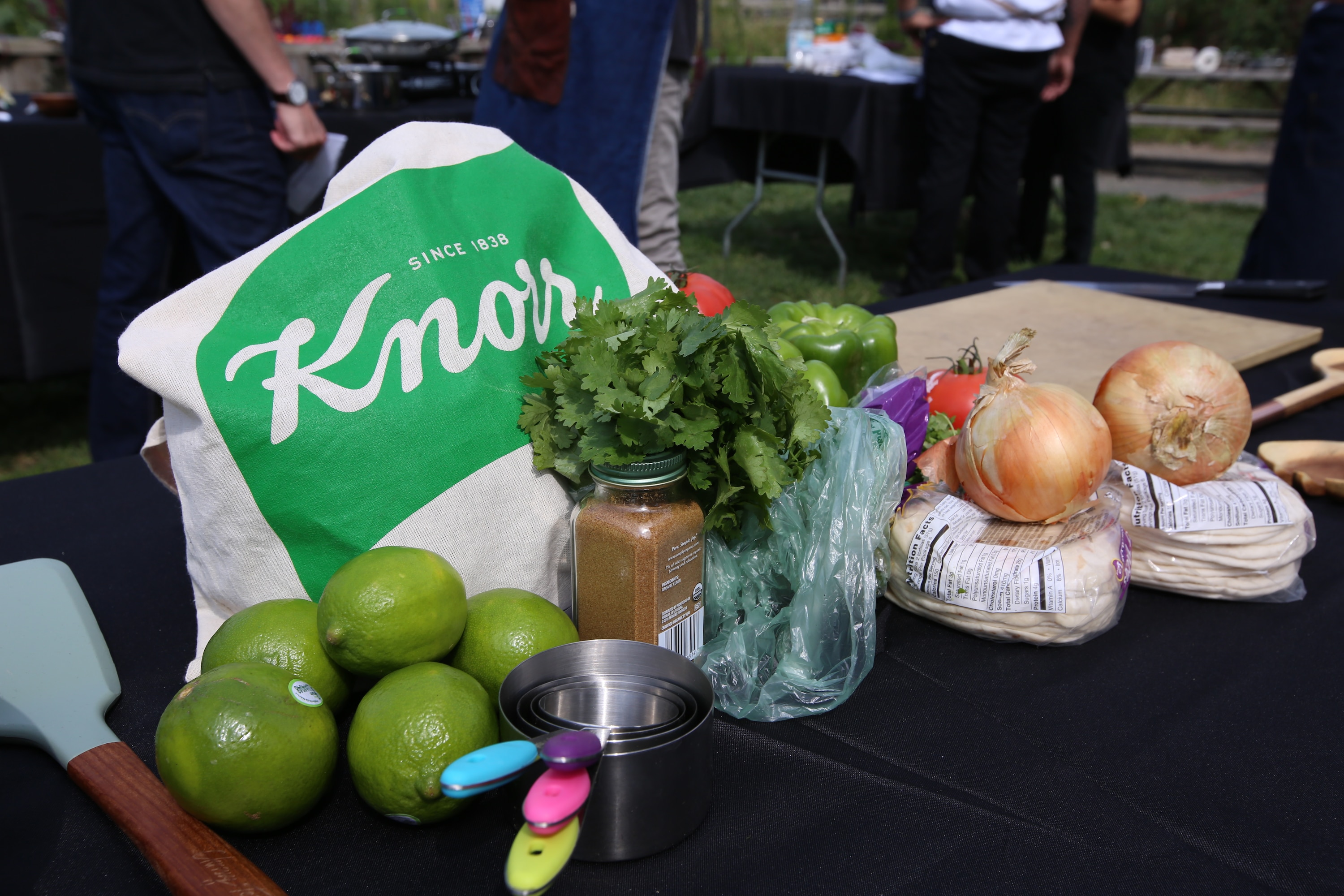Skip to:
For 38 million Americans and counting, the Supplemental Nutrition Assistance Program (SNAP) is a lifeline and pathway to nutrition for those in financial need. SNAP is a temporary benefit that offers eligible recipients money each month in the form of a reloadable debit card to help cover the cost of approved food and beverages. Especially as health risks have increased in the past 12 months and the pandemic continues to disrupt the ability of so many households to afford healthy food, the impact of good nutrition on our economy and wellbeing cannot not be overstated.
Despite this fact, SNAP, the Federal program formerly referred to as “Food Stamps”, remains largely misunderstood in the eyes of the general public and is often characterized by untrue or misleading assumptions. As part of Knorr’s commitment to make nutritious food accessible, we’re tackling a few of the biggest myths about what SNAP is not—and shedding light on the immense advantages it creates.
SNAP Is Not Just a Benefit for the Unemployed
Unfortunately, it’s not uncommon to hear scrutiny, regarding work ethic, for instance, unfairly associated with SNAP recipients. In fact, the majority of SNAP benefits go to households with at least one working adult whose work is “usually full time” according to the Center on Budget and Policy Priorities (CBPP). In these cases, often children or elderly adults are part of the household and that combined with common factors, such as underemployment or temporary loss of employment demonstrate why the temporary benefit is so important. As its name implies, SNAP is only a supplement to support food shopping. The average regular benefit amounts to $1.39 per person per meal. For majority of people, this is not enough to support a balanced, healthy diet. Rather, it is a means of making ends meet for a short period of time with the hope of informing recipients on nutrition. The good news is research by CBPP has shown that access to SNAP (or its former iteration, food stamps) led to better health and educational outcomes for children and reduced healthcare expenditures.
SNAP Boosts Local Economies and Communities
Many have argued that SNAP represents an economic burden, yet studies have shown that for every dollar spent by the program, 1.50 dollars are added to the economy, according to the Department of Agriculture. SNAP helps create jobs, and in many communities, grocers and farmers’ markets rely on the spending SNAP enables. About 80 percent of authorized SNAP retailers are smaller businesses, and in times of historic economic downturn, SNAP has been responsible for billions of dollars in local spending power. Small grocers and corner stores are often the economic backbone of communities. Supporting these businesses, through SNAP spending and through partnerships such as Knorr’s work with The Food Trust to offer mini-grants for store owners, is essential. SNAP is a valuable resource for those needing temporary assistance and can support local communities especially during a time of crisis.
SNAP Encourages Nutrition and Helps Supports Small Farms
Another common refrain surrounding the SNAP program is that people spend all their SNAP dollars on unhealthy food—in effect, that the program helps people access food but not necessarily nutrition. In several studies throughout the past decade, SNAP users have actually reported significant increases in their consumption of fruits and vegetables as a result of having the benefit. In one report from the Federal Reserve, 90 percent[PDF][4.2 MB] of respondents said they had increased or greatly increased their intake. SNAP is also accepted at farmers’ markets in all 50 states, and programs that Knorr is proud to support, like Double Up Food Bucks, help SNAP benefits go further for produce purchases in both markets and grocery stores. This has been especially true in 2020. In many communities around the country, SNAP expenditures at farmers’ markets have bolstered local food economies when farmers’ efficiency and vendor relationships have diminished due to the pandemic.
Breaking down the barriers and stereotypes surrounding SNAP will create more opportunities for people experiencing food insecurity to access good nutrition that can change their life and their families, as well as the communities around them. At Knorr, we strongly feel that supporting our customers also means advocating for SNAP. For us, access to food and basic nutrition is not a political issue but a human right. And we will continue to produce products and nutritious recipes, pursue partnerships and support policies that help people everywhere exercise that right.

